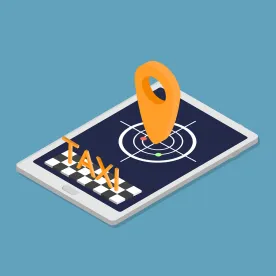Last week, Uber Technologies, Inc. and Lyft, Inc. announced that they would suspend ridesharing operations in the State of California in response to an August 10, 2020 San Francisco Superior Court judge’s preliminary injunction, requiring the companies to reclassify their California drivers as “employees” within 10 days. The order came in the context of a lawsuit brought by California’s Attorney General Xavier Becerra and the City Attorneys of Los Angeles, San Diego and San Francisco, accusing Uber and Lyft of violating California’s recently enacted anti-independent contractor statute, known as “AB 5.” However, before the trial court’s order could take effect and before Uber and Lyft suspended operations in the Golden State, the ride-sharing companies secured a temporary stay from the California Court of Appeal, which issued an order temporarily permitting Uber and Lyft to maintain their current driver classification as independent contractors rather than employees.
AB 5, which took effect on January 1, 2020, codified the now infamous “ABC Test” for determining whether a worker should be classified as an employee or an independent contractor. AB 5 was introduced and championed by California Assemblywoman Lorena Gonzalez, a former CEO of the San Diego and Imperial Counties Labor Council, AFL-CIO, who, according to data from VoteSmart.org, received nearly 35% of her 2020 campaign cycle funding from the very same labor organizations that made AB 5 a legislative priority in their ongoing effort to unionize Uber, Lyft and other private-sector gig-economy employers. While many employers secured job- and industry-specific exemptions, the gig-economy companies were not so lucky.
In response to AB 5, several gig-economy companies have sponsored a ballot measure – the “Protect App-Based Drivers & Services Act” – to establish a separate category of worker (in addition to employees and independent contractors) that would be eligible for certain minimum compensation and benefits. The initiative received over one million signatures, and it will appear on the California ballot this November as Proposition 22. Unsurprisingly, Proposition 22’s top donors are Uber, Lyft and other gig-economy companies, while the top donors to its opposition are nearly all labor organizations, including the SEIU, the California Federation of Teachers, and the California State Council of Laborers, each of which donated in excess of $200,000.
Even if Proposition 22 succeeds at the polls this fall, drivers, consumers and app-based companies face another hurdle: As part of his campaign platform (which predominantly favors organized labor), Democrat nominee for President Joe Biden has indicated that he wants to federalize California’s ABC Test, which would threaten independent contractors nationwide. So, if what Uber and Lyft contend is true (i.e., that classifying drivers as employees completely undermines the viability of the currently configured ride-sharing and delivery business), the end result may be a prolonged suspension of their operations from sea to shining sea – at least until driverless vehicles and drones become a viable alternative.





 />i
/>i
